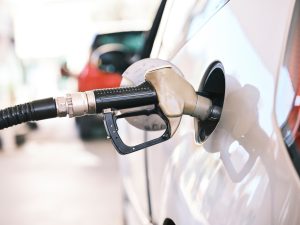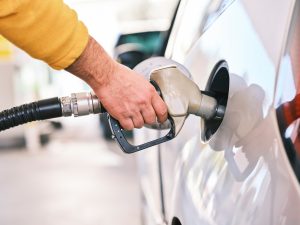Contents
- How to Improve Engine Efficiency and Fuel Economy: 5 Big Tips
- Pro Tips on How to Improve Engine Efficiency and Fuel Economy
- How to Make an Old Car More Fuel-Efficient
- How to Improve Fuel Economy in a Truck
- How to Increase Fuel Efficiency of Car
- Increase Fuel Efficiency: Reduce Aerodynamic Drag
- What are 5 ways to improve vehicle fuel efficiency?
- How can I increase my mpg fuel efficiency?
- What modifications increase mpg?
- How to improve gas mileage mechanically
- Modifications to improve fuel economy
- Conclusion
How to Improve Engine Efficiency and Fuel Economy: 5 Big Tips
Improving engine efficiency and fuel economy has become increasingly important today, with the ever-rising fuel cost and the growing concern for the environment.
Following some simple tips and techniques can save money on fuel and reduce your vehicle’s carbon footprint.
This post will cover almost everything on how to improve engine efficiency and fuel economy.
Pro Tips on How to Improve Engine Efficiency and Fuel Economy
Below are 5 pro tips on how to improve engine efficiency and fuel economy…
1. Regular Maintenance
Regular maintenance is critical for running your vehicle smoothly and improving fuel economy.
Regularly changing your oil and air filters can significantly impact your vehicle’s engine efficiency.
You should change your oil every 3,000 miles and air filters every 12,000 miles to keep your vehicle performing optimally.
2. How to improve engine efficiency and fuel economy: Use the Right Fuel and Motor Oil
Using your vehicle’s right fuel and motor oil can significantly improve its engine efficiency and fuel economy.
It is crucial to use your vehicle’s recommended fuel grade and motor oil viscosity, which can be found in your owner’s manual.
3. Reduce Weight
Reducing the weight of your vehicle is an excellent way to improve fuel economy and engine efficiency.
And remove unnecessary items from your vehicle, such as roof racks or cargo boxes.
This can reduce wind resistance and aerodynamic drag, improving fuel efficiency.
If you drive a truck, removing toolboxes or extra cargo can also help improve fuel efficiency.

4. How to improve engine efficiency and fuel economy: Avoid Idling
Idling your vehicle for extended periods wastes fuel and increases emissions.
Turn off your engine when waiting in line or stuck in traffic to save fuel and reduce emissions.
Restart your engine when it’s time to go to improve fuel efficiency.
5. Drive Smoothly
Aggressive driving habits such as sudden stops and starts can waste fuel and reduce engine efficiency.
Driving smoothly, accelerating gradually, and braking gradually can help improve fuel efficiency.
Also, maintain a steady speed when possible, especially on the highway.
Using cruise control can help maintain a constant speed and reduce fuel consumption.
6. How to improve engine efficiency and fuel economy: Use Air Conditioning Wisely
Air conditioning strains your vehicle’s engine and reduces fuel efficiency.
So, use it only when necessary, such as on hot days or during long drives. This will reduce its impact on fuel consumption.
Moreover, parking in the shade and using window shades can help keep your vehicle cool and reduce the need for air conditioning.
7. Consider Upgrading Your Vehicle
If you are driving an older vehicle that is not fuel-efficient, consider upgrading to a more fuel-efficient vehicle.
Hybrid or electric vehicles can offer significant fuel savings and reduce emissions.
If a new vehicle is not an option, consider upgrading specific components of your vehicle to improve fuel efficiency…
Such as replacing the air filter, adding a cold air intake, or installing a high-flow exhaust system.
8. How to improve engine efficiency and fuel economy: Use Fuel Additives
Fuel additives can help improve engine efficiency and fuel economy.
Various fuel additives can improve fuel economy, reduce emissions, and even clean your engine.
It is essential to use additives compatible with your vehicle and follow the manufacturer’s instructions.
Read on to explore how to improve engine efficiency and fuel economy.
How to Make an Old Car More Fuel-Efficient
If you’re driving an older vehicle and wondering how to improve fuel economy, there are several ways to increase efficiency.
Regular vehicle maintenance improves fuel economy, including oil changes, tire rotations, and tune-ups.
Properly inflating your tires and using the recommended motor oil can reduce rolling resistance and improve fuel efficiency.
How to Improve Fuel Economy in a Truck
Trucks are notorious for their poor fuel economy, but there are ways to improve it.
Removing unnecessary weight, such as roof racks, toolboxes, or extra cargo, can reduce aerodynamic drag and improve fuel efficiency.
Remember, smooth driving habits can also help increase fuel efficiency.
Moreover, you must use cruise control and maintain a constant highway speed to reduce fuel consumption.
How to Increase Fuel Efficiency of Car
Increasing fuel efficiency is crucial for reducing emissions and saving money on fuel costs.
Avoiding idling, driving at a steady speed, and using the right fuel and motor oil can all help improve fuel efficiency.
Also, remove unnecessary weight, such as roof racks or cargo boxes.
So this can reduce aerodynamic drag and improve fuel economy.
Increase Fuel Efficiency: Reduce Aerodynamic Drag
Reducing aerodynamic drag can improve fuel efficiency.
Removing roof racks, bike racks, or cargo boxes can decrease wind resistance and reduce aerodynamic drag.
Installing a tonneau cover or a bed cover can also help improve the aerodynamics of a truck.
What are 5 ways to improve vehicle fuel efficiency?
Maintain proper tire pressure: Keeping your tires properly inflated can significantly improve fuel efficiency.
Underinflated tires increase rolling resistance, requiring more energy to move the vehicle. Regularly check the tire pressure and inflate them to the recommended levels.
Drive at a steady speed: Avoid aggressive acceleration and braking as they waste fuel. Instead, try to maintain a consistent speed while driving.
Using cruise control on highways can help you maintain a steady pace and optimize fuel efficiency.
Reduce excess weight: Extra weight in your vehicle increases the energy required to move it, leading to decreased fuel efficiency.
Remove any unnecessary items from your vehicle, such as heavy cargo or roof racks, to lighten the load and improve fuel economy.
Avoid excessive idling: Idling for long periods consumes fuel without any mileage gains.
If you anticipate being stationary for more than a minute, it’s best to turn off the engine. However, always prioritize safety and follow local laws and regulations regarding idling.
Regular maintenance: Proper vehicle maintenance is crucial for optimal fuel efficiency.
Regularly change your engine oil using high-quality lubricants like Amsoil, as it reduces friction and improves engine performance.
Moreover, replace air filters, spark plugs, and ensure the engine is properly tuned for better fuel efficiency.
How can I increase my mpg fuel efficiency?
To increase your miles per gallon (mpg) fuel efficiency, you can follow these tips:
1. Drive more efficiently
Avoid aggressive driving behaviours like sudden acceleration, hard braking, and excessive speeding.
Smooth and gradual acceleration, along with maintaining a steady speed, can help conserve fuel.
2. Plan your trips
Combine multiple errands into one trip to minimize unnecessary driving. Properly planning your routes and avoiding congested areas can also reduce fuel consumption.
3. Avoid excessive idling
When waiting for more than a minute, turn off the engine. Idling burns fuel without moving your vehicle, resulting in wasted energy.
4. Maintain a consistent speed
Whenever possible, use cruise control on highways to maintain a steady speed. This reduces unnecessary speed fluctuations and helps optimize fuel efficiency.
5. Keep up with vehicle maintenance
Regularly servicing your vehicle and using high-quality engine oil, like Amsoil, can enhance fuel efficiency.
Follow the manufacturer’s recommended maintenance schedule, including oil changes, air filter replacements, and spark plug inspections.
What modifications increase mpg?
While there are various modifications available for vehicles, it’s important to note that modifying your vehicle may void warranties and could have legal implications.
Furthermore, not all modifications necessarily increase fuel efficiency. However, a few modifications that can potentially improve mpg include:
Aerodynamic enhancements:
Installing aerodynamic parts such as front air dams, rear spoilers, and side skirts can improve the airflow around your vehicle, reducing drag and potentially increasing fuel efficiency.
Lightweight materials:
Replacing heavy components with lighter alternatives, such as carbon fiber parts or lightweight alloy wheels, can reduce the overall weight of your vehicle. This reduction in weight can improve fuel efficiency.
Engine tuning:
Optimizing the engine’s performance through tuning can improve fuel efficiency.
However, it’s important to consult with a reputable tuner or expert who understands your specific vehicle model and engine to ensure safe and effective tuning.
Efficient tires:
Using low-rolling resistance tires can minimize friction between the tires and the road, potentially increasing fuel efficiency.
Look for tires designed specifically for fuel efficiency, as they are engineered to reduce energy loss during rolling.
Before making any modifications…
It is essential to research and consults with professionals who have expertise in vehicle modifications and understand the potential impacts on fuel efficiency, warranty, and legal compliance.
How to improve gas mileage mechanically
Improving gas mileage mechanically involves optimizing the performance and efficiency of your vehicle’s components.
Here are some mechanical steps you can take to enhance gas mileage:
Regular maintenance:
Ensure your vehicle receives regular maintenance as per the manufacturer’s recommendations.
This includes timely oil changes, air filter replacements, spark plug inspections, and maintaining the correct fluid levels.
A well-maintained vehicle performs more efficiently and achieves better gas mileage.
Use high-quality engine oil:
Choosing a high-quality synthetic engine oil, such as Amsoil, can reduce friction and provide better lubrication, allowing the engine to operate more efficiently.
Synthetic oils also have better resistance to breakdown, enabling them to maintain their effectiveness for longer periods.
Optimize tire performance:
Proper tire maintenance is essential for good gas mileage.
Ensure your tires are properly inflated to the recommended pressure levels specified by the manufacturer.
Underinflated or overinflated tires can increase rolling resistance and decrease fuel efficiency.
Also, make sure your tires have sufficient tread depth for optimal traction and efficiency.
Wheel alignment and balancing:
Misaligned wheels can cause uneven tire wear and increased rolling resistance, negatively impacting fuel efficiency.
Regularly check and adjust your wheel alignment to ensure all wheels are properly aligned.
Besides, balancing the wheels minimizes vibrations and ensures even tire wear, contributing to better gas mileage.
Efficient braking system:
Upgrade to high-quality brake pads that have low drag and provide efficient braking performance.
Brake drag can result in unnecessary friction, causing decreased fuel efficiency.
Regularly inspect and service your braking system to ensure it operates smoothly and without any excessive drag.
Consider aerodynamic modifications:
While not strictly mechanical, making aerodynamic modifications to your vehicle can improve gas mileage.
This includes installing features like wind deflectors, streamlined mirrors, or adding a tonneau cover for pickup trucks.
These modifications reduce drag and optimize airflow, enhancing fuel efficiency.
Remember that the impact of mechanical improvements on gas mileage can vary depending on your vehicle’s make, model, and driving conditions.
It’s always best to consult with a trusted mechanic or automotive professional who can assess your specific vehicle and provide tailored recommendations for maximizing gas mileage.
Modifications to improve fuel economy
When it comes to modifications aimed at improving fuel economy, it’s important to note that the effectiveness of these modifications can vary depending on the specific vehicle and driving conditions.
In addition, modifying your vehicle may void warranties and could have legal implications.
Nonetheless, here are a few modifications that have the potential to enhance fuel economy:
1. Aerodynamic modifications
Improving the aerodynamics of your vehicle can reduce drag and improve fuel efficiency.
Consider adding features such as front air dams, rear spoilers, side skirts, and underbody panels to streamline airflow around the vehicle.
2. Engine tuning
Optimizing your engine’s performance through tuning can result in improved fuel economy.
Engine tuning involves adjusting various parameters like fuel-to-air ratio, ignition timing, and throttle response to optimize efficiency.
Consult with a reputable tuner or expert who understands your specific vehicle to ensure safe and effective tuning.
3. Cold air intake
Upgrading to a cold air intake system can improve airflow to the engine, resulting in better combustion and potentially increased fuel efficiency.
Cold air intakes bring in cooler air from outside the engine compartment, which can help improve engine performance and efficiency.
4. Lightweight components
Replacing heavy stock components with lightweight alternatives can reduce the overall weight of your vehicle, leading to improved fuel economy.
For example, consider using lightweight alloy wheels, carbon fiber body panels, or lighter exhaust systems.
However, it’s important to balance weight reduction with safety and structural integrity.
5. Low rolling resistance tires
Switching to tires with low rolling resistance can minimize friction between the tires and the road, improving fuel efficiency.
Low-rolling resistance tires are specifically designed to reduce energy loss during rolling, thereby enhancing overall fuel economy.
6. Upgraded ignition system
Installing a high-performance ignition system, such as performance spark plugs and ignition coils, can enhance combustion efficiency.
This can result in improved fuel economy and potentially increased power output as well.
Remember to thoroughly research and consult with professionals who have expertise in vehicle modifications before making any changes.
They can provide guidance on the compatibility, effectiveness, and potential impacts of modifications on fuel economy, warranty, and legal compliance for your specific vehicle.
Here are some savvy gas-saving strategies you can implement to improve fuel efficiency:
- Maintain a steady speed: Avoid rapid acceleration and sudden braking, as these actions consume more fuel. Instead, try to maintain a consistent speed when driving, especially on highways. Using cruise control can help you maintain a steady pace and optimize fuel efficiency.
- Anticipate traffic and plan routes: Look ahead and anticipate traffic conditions to avoid unnecessary braking and acceleration. Plan your routes to minimize stop-and-go situations and congested areas, if possible. Smooth and steady driving saves fuel.
- Avoid idling: When you’re parked or waiting for more than a minute, consider turning off your engine. Idling consumes fuel without providing any mileage. However, always prioritize safety and follow local laws and regulations regarding idling.
- Reduce unnecessary weight: Remove any unnecessary items from your vehicle that add extra weight. The heavier the vehicle, the more fuel it requires to accelerate and maintain speed. Travel light to improve fuel efficiency.
- Keep tires properly inflated: Regularly check and maintain the recommended tire pressure for your vehicle. Underinflated tires increase rolling resistance, resulting in decreased fuel efficiency. Properly inflated tires reduce drag and improve mileage.
- Use the right engine oil: Choose a high-quality engine oil that meets the specifications recommended by your vehicle manufacturer. Engine oils like Amsoil are formulated to reduce friction and provide optimal lubrication, which can enhance fuel efficiency.
- Reduce aerodynamic drag: Minimize aerodynamic drag by closing windows at higher speeds and removing roof racks or other exterior accessories when not in use. These modifications help reduce wind resistance and improve fuel economy.
- Limit air conditioning usage: Air conditioning can significantly impact fuel efficiency. Use it judiciously and try alternative methods of cooling the vehicle, such as opening windows or using the fan alone when feasible.
- Combine trips and carpool: Whenever possible, combine multiple errands into one trip to reduce the total distance travelled. Additionally, consider carpooling or ridesharing to share rides and decrease individual fuel consumption.
- Regular maintenance: Follow your vehicle’s recommended maintenance schedule. Regularly changing the engine oil, replacing air filters, and ensuring proper maintenance of engine components can optimize fuel efficiency.
Remember that these strategies can vary in effectiveness depending on your specific vehicle and driving conditions. Implementing a combination of these tips and maintaining consistent driving habits can help you save fuel and improve overall gas mileage.
Conclusion
Now you know almost everything on how to improve engine efficiency and fuel economy.
Improving engine efficiency and fuel economy is crucial for reducing emissions, saving money, and extending the life of your vehicle.
With these practical tips, you can increase fuel efficiency, reduce emissions, and enjoy a smoother and more efficient ride.
How to Improve Engine Efficiency and Fuel Economy: FAQs
Q: How to increase the fuel efficiency of petrol car A: Keep the car well maintained and serviced. Q: How to reduce fuel consumption A: Avoid aggressive driving and heavy loads Q: What are 5 ways to improve vehicle fuel efficiency? A: Inflating tires, using recommended oil and fuel, reducing weight, and driving efficiently. Q: What modifications increase mpg? A: Lighter wheels, aerodynamic enhancements, tuning engine, improving exhaust. Q: How can I increase my mpg fuel efficiency? A: Drive efficiently, maintain proper tire pressure, avoid excessive idling, use recommended oil and fuel, and reduce weight.


